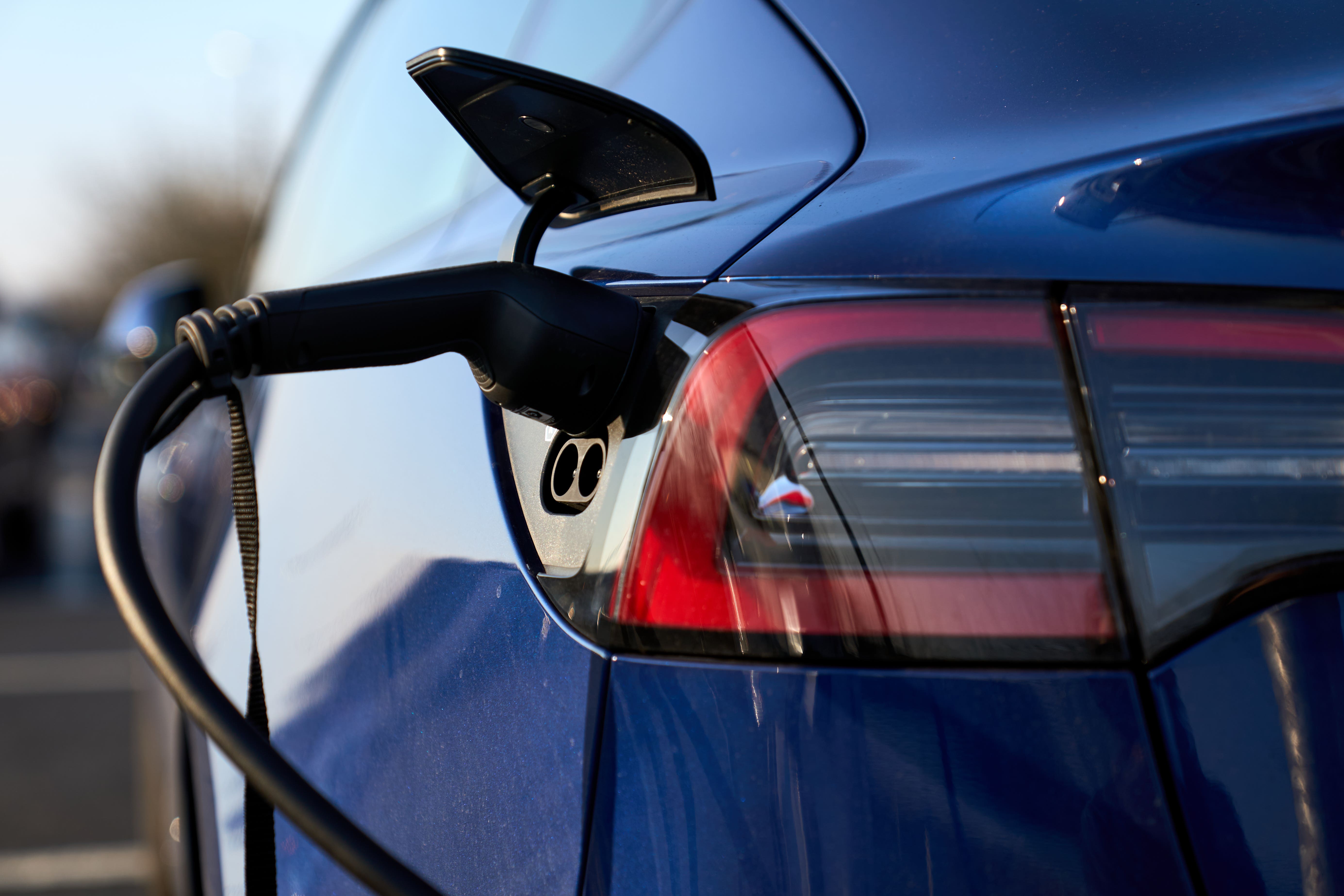Tests show EVs in winter can do up to a third less mileage than advertised
Magazine What Car? tested a dozen electric vehicles in cold weather.

The distance electric cars can travel in winter with a fully-charged battery is up to a third less than advertised, an investigation has found.
Magazine What Car?, which tested a dozen electric vehicles (EVs) in cold weather, said it is important that potential owners “understand the pros and cons of this technology”.
The Funky Cat First Edition by Chinese manufacturer Ora had the biggest discrepancy between the actual and official range of the cars analysed.
It did just 130 miles before stopping, some 33% below the stated figure of 193 miles.
Renault’s Megane E-Tech had the second largest difference at 32%.
The car that got closest to its advertised range was the Nissan Ariya, with a discrepancy of just 16%.
The Tesla Model Y was in second place at 18%.
All the cars were fully charged and left outside overnight in temperatures ranging from 0C to 2C, before being driven at a test venue simulating real-world conditions on different types of road until they stopped.
Many of these electric cars have the advantage of being cheaper to run than petrol or diesel equivalents
Will Nightingale, who leads What Car?’s test team, said: “More and more people own or are considering electric cars, and it’s important that they understand the pros and cons of this technology, especially in terms of how far they are likely to go between charges.
“While it’s common knowledge that cold weather negatively affects battery performance and efficiency – especially if the car’s heating system is in use – What Car?’s real range testing is designed to give car buyers the clearest possible understanding of how many miles they will typically be able to cover in wintry British conditions.
“Despite falling short of their official figures, it’s still clear that many of these electric cars have the advantage of being cheaper to run than petrol or diesel equivalents, assuming you can charge at home.”
Mike Hawes, chief executive of the Society of Motor Manufacturers and Traders, said: “Car makers are investing billions in developing zero emission vehicles, with improved battery performance, range and charging times, to make them a compelling choice for all drivers.
“There will always be a difference between lab tests and real-world use due to variations in conditions and that battery performance, charging times and efficiency are all impacted by cold weather, so range is expected to differ in those conditions.”
Meanwhile, Labour said its analysis of planned EV battery production shows that by 2025 the UK is on course to have 10 times less capacity than Germany and 30 times less capacity than the US.
The party has committed to supporting the creation of eight new plants in the UK if it comes to power.
Shadow transport secretary Louise Haigh said: “Our world-class car industry can lead the way, but under the Conservatives we are losing the race to build the electric vehicle revolution here in Britain.
“Labour will turbocharge electric vehicle manufacturing and bring good jobs back to Britain’s industrial heartlands.
“We will invest in eight new battery plants, and lower sky-high electric costs hampering British industry with our plans for zero-carbon power.”
Sales of new petrol and diesel cars and vans in the UK will be banned from 2030.
More than a fifth of new cars sold in the UK last year had a plug.
A government spokesperson said: “The UK remains Europe’s most attractive destination for investment, and we are determined to ensure it remains one of the best locations in the world for automotive manufacturing, too.
“Our success is evidenced by the £1 billion investment in Sunderland in 2021, and we are building on this through a major investment programme to electrify our supply chain and create jobs.”
Bookmark popover
Removed from bookmarks